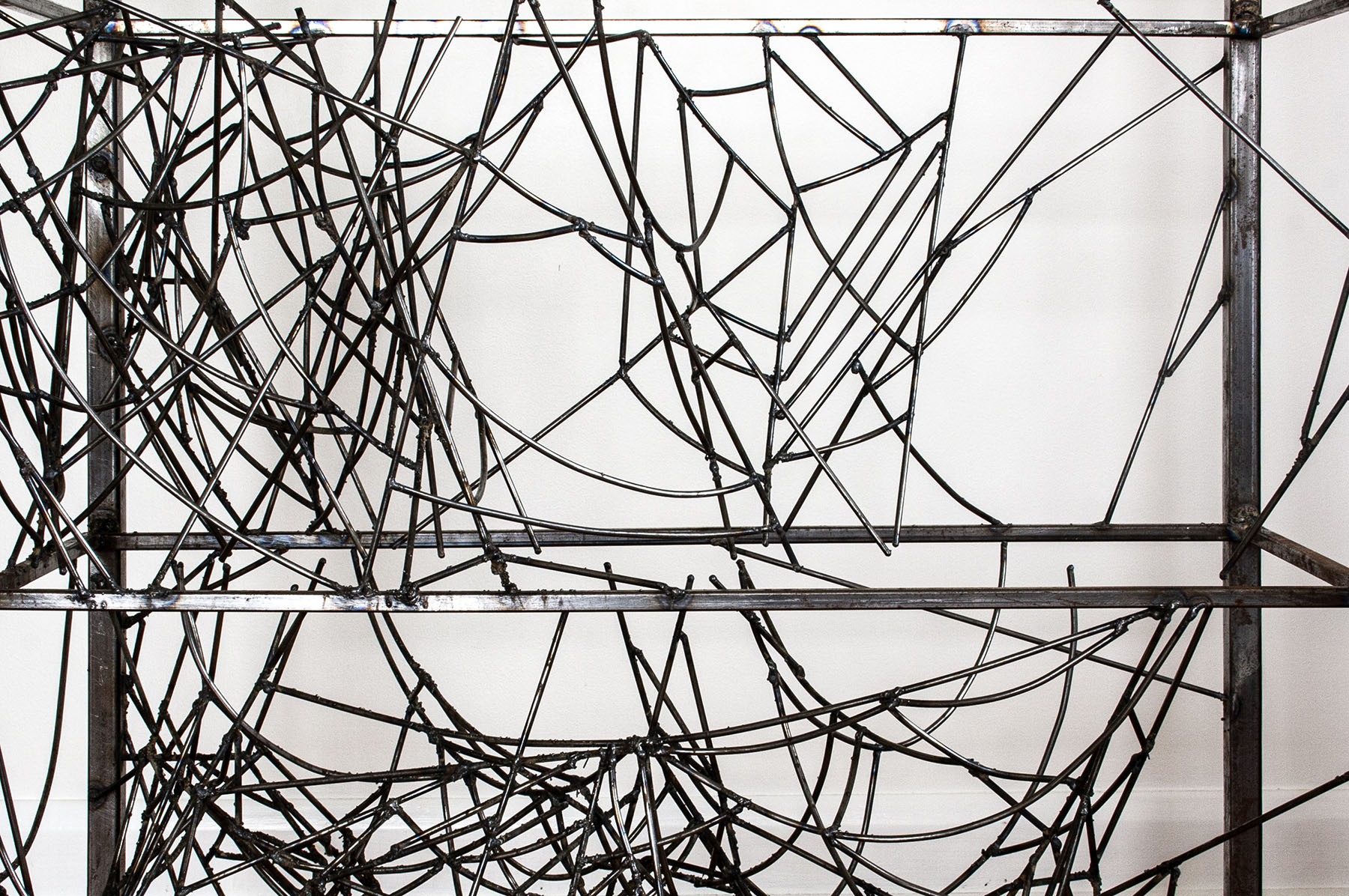Rhonda Weppler and Trevor Mahovsky
What Is and What Should Never Be
31 Jan - 07 Mar 2020
Calling to mind the space of a home, the sculptures in this exhibition restage the uncertainty and contradiction inherent within our physical and psychological interface with the close-at-hand. The works confuse the sense of what is surface with what is support, what is a singular object with what is many objects, and what is representation with what are the material traces of the process of making.
New free-standing shelf sculptures are part of a series of work that the artists consider all-armature sculptures. The artists extend and thicken the shelf armatures, in order to depict objects, such as plants, that appear to rest upon them, floating above negative spaces delineated by the shelf frames to be stand-ins for panes of glass. These works thus conflate what counts as part of the sculpture and what does not, what is material and what is just the air that surrounds it.
These metamorphic fusions of shelves with such things as plants or spider webs recall the way interior spaces, embellished with plant and animal patterns, are often decorated to appear as if overtaken by nature. The artists are interested in the way such a desire to give one’s world over to wildness and dissolution, including trippy states governed by magic, fantasy and play, emerges as the flipside of a total control of surface.
Upstairs, the artists present a series of watercolours in which brick walls are depicted in an echo of the flat surface of the paper. These walls are punctured with entrances to alleyways rendered in isomorphic perspective, suggestive of the streets that trail off in strange perspective found in the works of de Chirico. Graphically elaborate tags, articulating suggestive names such as Limmp, Lurker and Pleezer, are splayed along the deeply receding walls of the openings, as if they were words emerging from mouths. They conjure the presence of a world with its own rules and language that lies, somehow, further inside the fibres of the paper.
New free-standing shelf sculptures are part of a series of work that the artists consider all-armature sculptures. The artists extend and thicken the shelf armatures, in order to depict objects, such as plants, that appear to rest upon them, floating above negative spaces delineated by the shelf frames to be stand-ins for panes of glass. These works thus conflate what counts as part of the sculpture and what does not, what is material and what is just the air that surrounds it.
These metamorphic fusions of shelves with such things as plants or spider webs recall the way interior spaces, embellished with plant and animal patterns, are often decorated to appear as if overtaken by nature. The artists are interested in the way such a desire to give one’s world over to wildness and dissolution, including trippy states governed by magic, fantasy and play, emerges as the flipside of a total control of surface.
Upstairs, the artists present a series of watercolours in which brick walls are depicted in an echo of the flat surface of the paper. These walls are punctured with entrances to alleyways rendered in isomorphic perspective, suggestive of the streets that trail off in strange perspective found in the works of de Chirico. Graphically elaborate tags, articulating suggestive names such as Limmp, Lurker and Pleezer, are splayed along the deeply receding walls of the openings, as if they were words emerging from mouths. They conjure the presence of a world with its own rules and language that lies, somehow, further inside the fibres of the paper.

